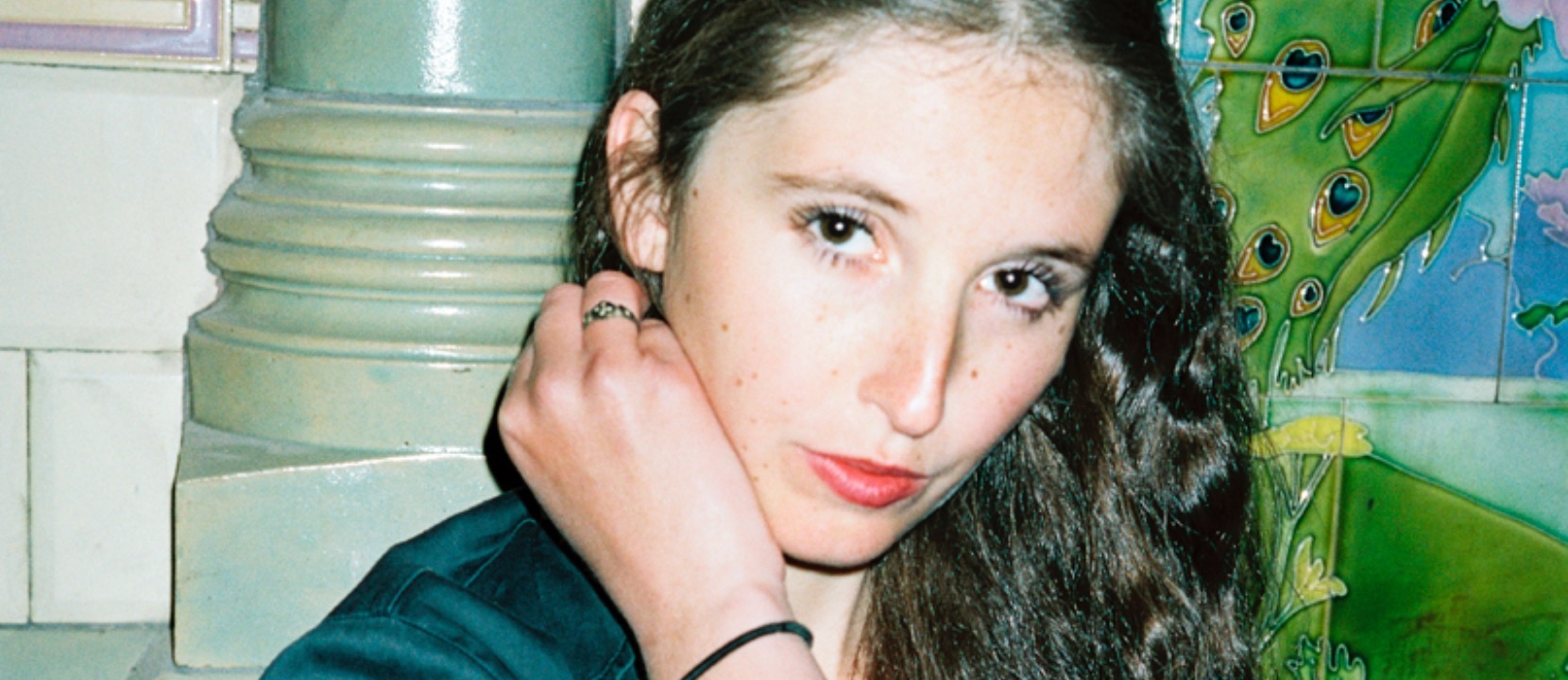Such an exuberant, violent imagination for such a delicate body – the fact that this thought even occurs to me, as a female writer, just goes to show how women themselves burden their sisters with clichéd thinking. As if a young female director could only come up with sweet little fantasies and charming images… In any event, this is clearly not the case with Lisaboa Houbrechts (b. 1992, Hasselt, Belgium), as has already been obvious from her work for a number of years.
Her name first began buzzing around as a member of the Kuiperskaai collective, a foursome who in 2014 were studying at the KASK School of Arts and shared a studio on the Kuiperskaai in Ghent. Three of the four had roots in the arts, and yet it was Houbrechts, an only child from a family without any particular claim to cultural merits, who wrote and directed the collective’s first creations that attracted attention. The epic scenes of The Goldberg Chronicles (2014) featured an exorbitant amount of singing, dancing, yelling, painting, French kissing, fighting, pissing and puking, in an unusually brutal mix of disciplines.
Not only is the form ambitious; what is particularly striking is Houbrechts’ intense writing: a poetic blend of historical research and frenzied imagination, of fiction and reality, often expressed in long musical monologues that have the power of lamentations. Houbrechts’ fondness for history is rooted in her desire to say something about today – but then in a less ostentatious, not so blatant way. She treats history as a fertile layer of compost for looking at the present. “The past is not behind us,” says Lisaboa Houbrechts, “it is something we carry in our bodies today.”
What’s more, her use of large gestures is a way of escaping from the intimacy of the autobiographical, which comprises things she cannot (yet) express. The big stories, the blood and revenge tragedies of the Greeks and Shakespeare, but also the influence of visual artists such as Paul McCarty and Anish Kapoor, offer her a safe and universal way of processing her own emotions. At KASK, they think that “at times it could be a little less”, but for Houbrechts that is not an option. Says she, “If you try to do it with less, you quickly fall back on your own body. I realized that it was impossible for me to express what is locked up in there.”
Nor, for that matter, does Toneelhuis necessarily think it should be less. In 2017, Antwerp’s municipal theatre asked Houbrechts to participate in P.U.L.S., a four-year development project intended to lead to the main auditorium. The large stage fits Houbrechts like a glove – not surprising, considering the expanse of her world of thought and language of form. Raw productions such as 1095 (2017) and Hamlet (2018) moreover prove that being implanted in a bigger institution has not necessarily tamed the radicalness of Houbrechts and her companions. Nonetheless, with Bruegel she is now treading a new path, under her own name for the first time. “In Bruegel, it’s no longer about the overwhelming power of a group, but my own radical quest,” says Houbrechts. “This piece speaks about things that I hardly dare to mention in real life.”
The time has come to show herself, albeit through the figure of Dulle Griet, whose mythological grandeur affords protection for her present-day creator. In Bruegel, Dulle Griet travels through time in search of female icons from past and present. As a ‘battle-axe’ – in Bruegel’s day she was ridiculed for her fearless behaviour – she strikes up conversations with archetypal women like Athena and the Virgin Mary, using words that Houbrechts herself had been trying to find for some time.
“All my life, I have been engaged in a total struggle with my body. What it looks like, what it means, how it feels,” says Houbrechts. “As I was writing Bruegel, I found words that I could identify with for the first time, wonderful words like ‘fluidity’. That made it possible for me to accept myself, to stop pushing aside what can’t be denied. Sometimes you are more courageous in your work than you are in real life.”
In short, Bruegel has cleared away the blockages in his director’s relations, both personal and professional, and allowed them to flow again. Equally flowing are Houbrechts’ lilting scripts, in Bruegel surrounded by the melancholy sounds of the kamancheh (an Iranian string instrument, played here by Mostafa Taleb) and late medieval songs performed by the ensemble Harmonia Sacra. Another aspect of the music: old voices coming together through time and space to gain a new and contemporary significance.
Ultimately, that is what Houbrechts’ work is all about: showing us how the icons of today will be shattered tomorrow. In the shards that she smashes in Bruegel, she now for the first time also sees herself, an experience she hopes will deeply affect her audience. “Making this production has given me tremendous strength,” says Houbrechts. “I hope that the people who see the show will recognize this, and that in some way my strength can also become theirs.”
This interview by Evelyne Coussens appeared in De Morgen, 6 December 2019


